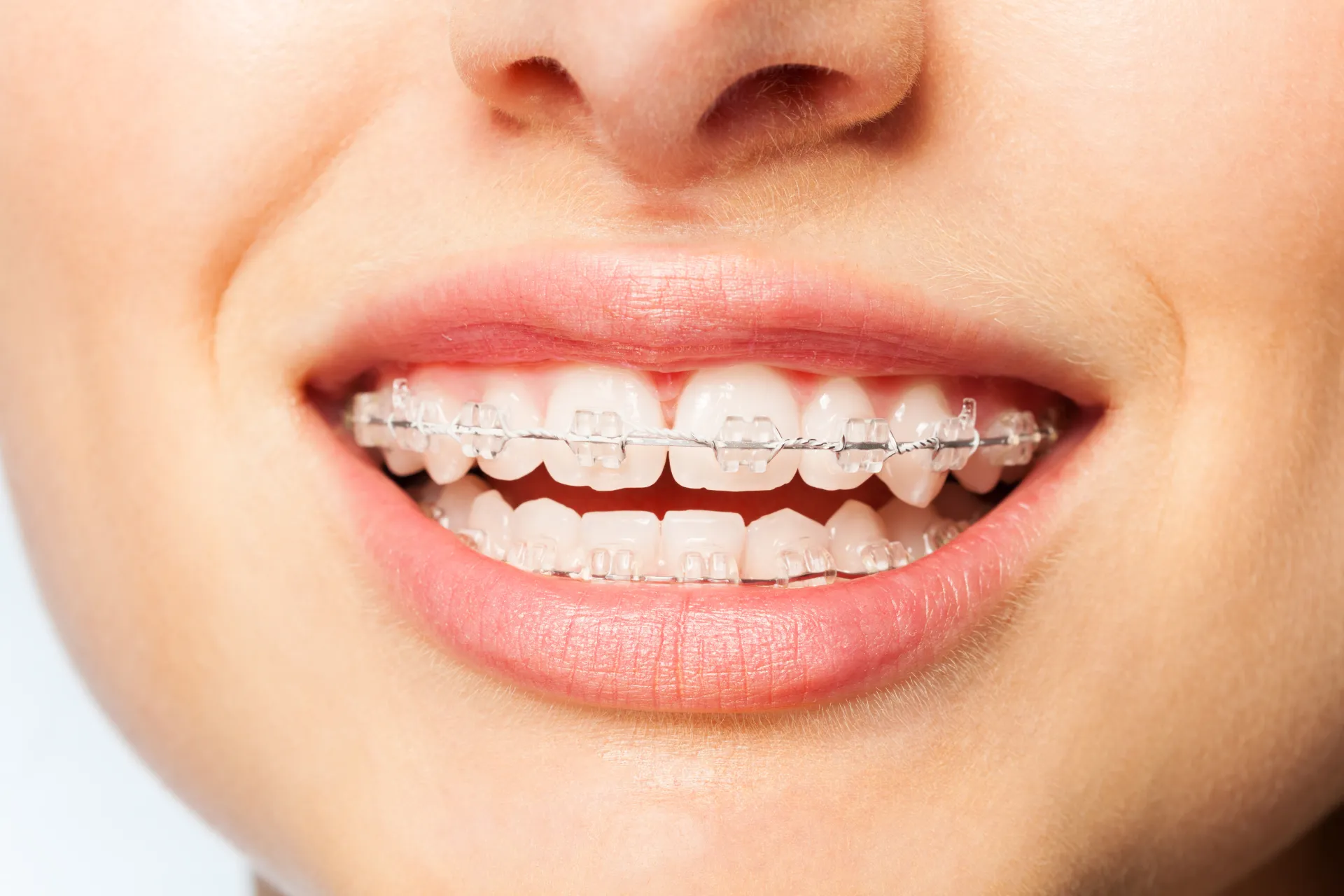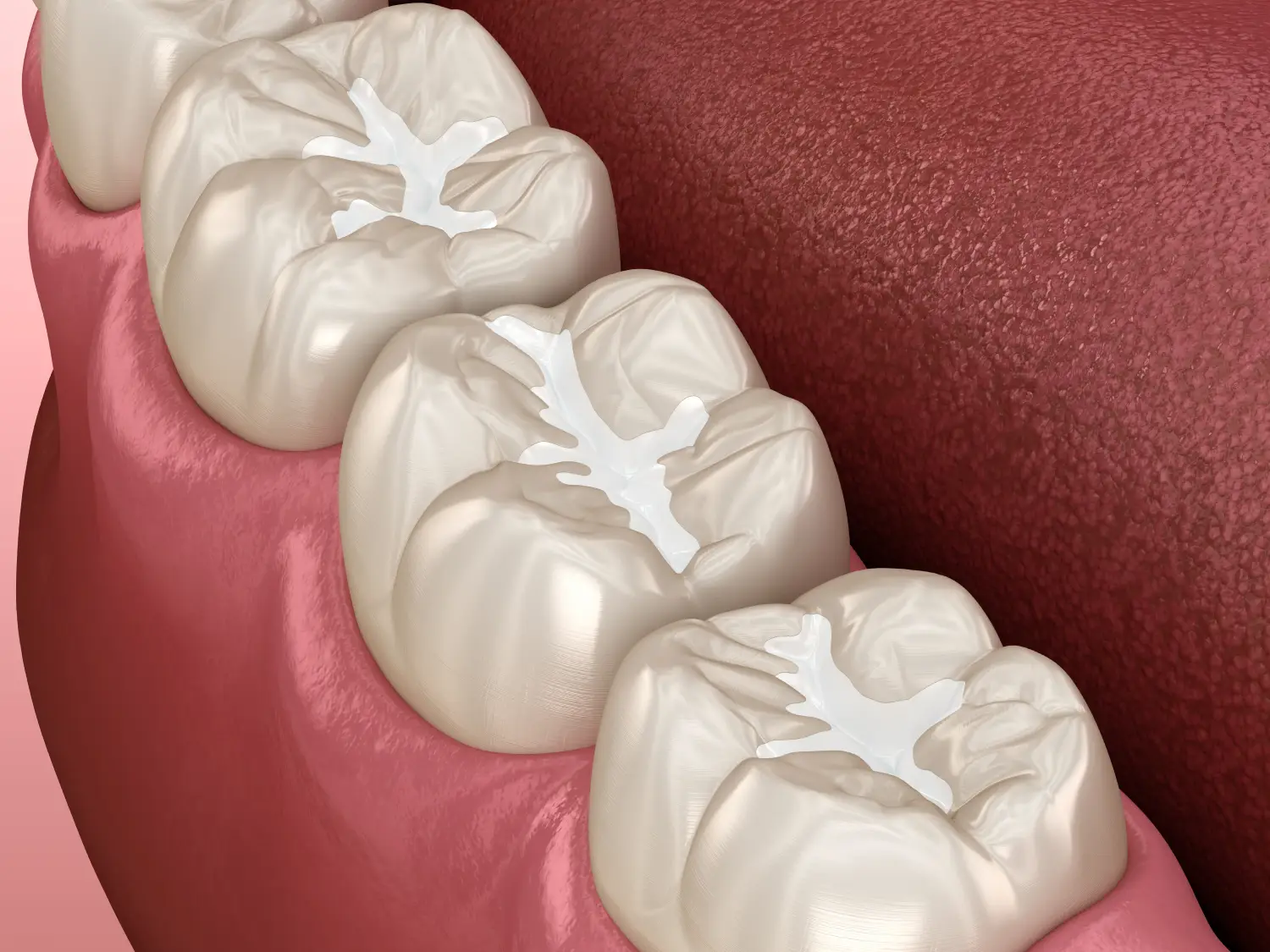
Blog
Blog
3/7/2025
Welcome to Lunada Bay Dental
At Lunada Bay Dental, our doctors bring a unique blend of experience, passion, and innovation to every treatment. Dr. Dyan Van de Velde, with over 40 years in dentistry and 14 years leading our practice, is renowned for her expertise in cosmetic and restorative treatments. Educated at UCLA and Tufts University’s School of Dental Medicine, she combines art, psychology, and engineering to craft beautiful, functional smiles.


Welcome to Lunada Bay Dental
At Lunada Bay Dental, our doctors bring a unique blend of experience, passion, and innovation to every treatment. Dr. Dyan Van de Velde, with over 40 years in dentistry and 14 years leading our practice, is renowned for her expertise in cosmetic and restorative treatments. Educated at UCLA and Tufts University’s School of Dental Medicine, she combines art, psychology, and engineering to craft beautiful, functional smiles.
Read More

Types of Teeth Cleaning – Quad vs Standard
At Lunada Bay Dental Practice, we offer multiple types of teeth cleaning for those throughout the Palos Verdes Estates area. In our office, conveniently located in the 90274 area, we will start by examining our patient’s teeth before determining which types of teeth cleaning: quad vs standard, is necessary. The majority of the time, our patients will only need a standard teeth cleaning. This can be completed during the same, initial office visit and is relatively comfortable. Most people don’t require any sedation in order to remain relaxed as this is the most standard of dental procedures. In fact, a standard teeth cleaning is what children start to receive at a very young age. Dental tools are used to remove plaque and tartar that have built up on the teeth and around the gums and as long as too much time hasn’t passed between dental exams, this is typically all that is needed.
Read More
.webp)
Tooth Decay, Gum Disease, Infection: Take Preventative Action
For anyone who grinds his or her teeth at night, there are possible options for at-home treatment. Grinding teeth can wear down the tooth enamel and cause jaw pain. Since the teeth grinding occurs at night, it can be difficult for the individual to prevent it without extra assistance. We can determine your specific needs and provide you with the necessary tool to prevent the teeth from grinding against each other at night; this tool is known as a night guard.
Read More

The New Technology Behind a Dental Veneer
In dentistry, a dental veneer is one of the very few devices that can cross over between purely aesthetic and functional treatment. For a very long time, people considered dental veneers to be purely aesthetic and are still considered by some to be for nothing more than better-looking teeth. However, when you have a damaged tooth, you have three options. You repair it, replace it, or lose it.
Read More

My Tooth Bonding Has Fallen Out
If your tooth bonding falls out, it is important to replace it as quickly as possible. Patients generally get tooth bonding because they crack or chip a tooth. This means that the tooth structure underneath is still damaged and susceptible to infection. You will experience discomfort if the bonding material eventually becomes loose and falls out of place. Replacing it immediately is the best option for preventing what can be a severe infection due to leaving the tooth exposed.
Read More

TMJ versus TMD – What is the difference?
Currently having jaw problems? Wondering if you have TMJ? You just might be right, although the correct term would be TMD. While this inconvenient jaw issue has affected millions of people over the years no one is really sure of the true causes of this popular dental syndrome. Although, the following list is believed to contribute to one developing this jaw disorder – jaw trauma, teeth grinding, stress, braces and even excessive or aggressive gum chewing.
Read More

How Long Does at Home Teeth Whitening Take?
Looking for the best do it yourself teeth whitening methods? Those who want to try and whiten their teeth at home themselves vs. buying an over the counter whitening kit or making an appointment with a professional dentist are often the type of people who like to do things themselves whenever possible. These people figure that if they can use a few ingredients they already have in the cabinet or go to their local drugstore to buy something, then why not?
Read More
.webp)
Should I Brush or Floss my Teeth First?
People often wonder if they should brush, floss or rinse first. This is a perfectly legitimate question that plenty of dentists do not address for varying reasons. In fact, some dentists do not have an opinion as to whether the teeth should be brushed or flossed first.
Read More

5 Ways to Whiten Dull Teeth
When it comes to whitening dull teeth, most people assume teeth whitening at the dentist's office or whitening the teeth with an over-the-counter product at the store are the only options. There is plenty of confusion as to the most effective approach to whiten dull teeth.
Read More
.webp)
When to Be Concerned About Loose Teeth
Need information on loose teeth? If you are someone who currently has a loose tooth, the next step should be finding out the cause.
Read More

Benefits of Clear Braces
Clear braces are a popular option for those who may be self-conscious of their smile. For teens and young adults, you may hear jokes from friends regarding your braces. For adults, wearing braces can lower your confidence at the office or while out with friends.
Read More
%20(1).jpg)
4 Tips for Proper Invisalign Maintenance
Choosing Invisalign clear aligners to straighten your teeth is a great idea! Many dental patients are choosing this option when wanting straighter teeth, as clear aligners offer a number of exciting benefits.
Read More

A Family Dentist on Chewing Gum: Yes or no?
How do family dentists feel about chewing gum? You will probably find packets of gums in the checkout area of convenience stores, grocery stores, drugstores and gas stations. Although sugar-free gum is the most common option available, the myths of chewing gum might confuse you.
Read More

Prevent Gum Disease by Taking Probiotics
If you're suffring from gum disease, you probably have the bacteria in your mouth to blame. At any time, humans have over 500 different types of bacteria living in their digestive system. Their primary purpose is to ensure proper food digestion and maintain intestinal health. Also, they fortify the immune system and help it combat diseases.
Read More

Consider Clear Braces for Straighter Teeth
Clear braces can help you feel better about fixing your teeth because your whole treatment process will be somewhat hidden. If you have been thinking about getting braces but do not want to spend the whole length of your treatment with a mouth of metal, clear braces might be the best choice for you.
Read More

How Painful Can a Tooth Extraction Be?
Preparing for an upcoming tooth extraction? The main concern for patients is the potential pain that comes with the procedure. Thankfully, modern-day dentistry has allowed for new technology, which helps to keep pain at a minimum. Nonetheless, it is necessary to get familiar with what is involved in order to be appropriately prepared. Keep reading to learn more!
Read More

Four Benefits of a Dental Cleaning
A dental cleaning is a simple and non-invasive dental procedure in which plaque and tartar accumulation is scaled away and the teeth and gum line are thoroughly cleaned and polished. There are several notable benefits of this preventive dental procedure that patients should understand.
Read More

When to Have an X-Ray Done For Your Child at a Family Dentist
One of the concerns parents often have about their children is the need to get a dental x-ray at the family dentist. The worry stems from the safety of x-rays and radiation exposure. Some parents think x-rays are not required until the child has permanent teeth. Continue reading to know when to take your child for x-rays.
Read More

Achieve Your Dream Smile With a Skilled Cosmetic Dentist
A skilled cosmetic dentist can take a smile that you are not confident in and transform it into something radiant. Whether you are self-conscious about the shade of your teeth or how they sit in your mouth, know that you do not have to live with blemishes and imperfections forever. A cosmetic dentist can help you achieve your dream smile through numerous treatments, all customized to address the specific goals and desires of individual patients.
Read More

Why You Should Rest after a Tooth Extraction
Undergoing a tooth extraction can be stressful. Dentists do everything they can to save natural teeth, but sometimes, removing the tooth is the way to restore oral health and prevent complications. After the procedure, the dentist will provide instructions regarding aftercare to ensure quick and proper healing.
Read More

Caring for Your Dental Bridge: Tips for Longevity
A traditional dental bridge can replace up to three or four consecutive teeth on the same side of a dental arch. It is one of the most common dental replacements you can get. Knowing how to care for it can help maintain your new smile for a long time. Here are some tips for ensuring a lasting dental bridge.
Read More

How Dental Implants Improve Oral Health and Function
A dental implant is the gold standard in dental restorations. It can replace an entire tooth structure from the crown to the roots. This tooth replacement can enhance your oral function and health. Here are the details on how a dental implant can improve your quality of life.
Read More

Orthodontics Can Help Self Esteem and Confidence
Invisalign® and traditional braces are two of the most common treatments that are used in orthodontics. General dentists offer both in an effort to boost individuals' self-esteem and confidence, in addition to improving oral health. Continue reading to find out more.
Read More

Dentist Near Me: What To Look for in a Practice
Are you searching for a "dentist near me"? Read on to learn more about choosing a dental health professional. If you are in a new location or just need to find a new "dentist near me," you will probably need to explore a couple of options. Finding a good dentist requires you to do your homework, considering that decision could have a significant impact in the long run.
Read More

Eight Questions to Ask a Dentist About a Smile Makeover
The first step you need to take towards getting the smile of your dreams is a smile makeover consultation. This involves talking to a dentist about the things you would like to see improved. It also involves a thorough examination of your teeth and gums, searching for issues that affect the way they look.
Read More

Signs of a Worn Dental Filling
It's safe to say that you may have a dental filling if you are reading this. Having a cavity filled is one of the top reasons a patient goes to the dentist. A filling is necessary once the tooth enamel begins to break down. A filling will stop the cavity from spreading or getting any bigger. We all want to save our natural teeth for as long as possible and keep our smiles healthy and white.
Read More

Does a Restorative Dentist Use Dental Bridges?
A restorative dentist might recommend a dental bridge if you are missing multiple teeth right next to each other. Read on to learn more about this type of restoration. Bridges are permanently fixed artificial teeth that are usually secured to the two teeth closest to the gap. These oral devices help restore the function of lost teeth, and they help to keep the remaining teeth in their proper alignment.
Read More

Why Clear Braces Are a Popular Option for Teeth Straightening
For individuals with crooked or misaligned teeth, a dental provider may recommend wearing braces as a corrective treatment. Patients may be able to choose between clear braces or metal braces, depending on the condition of the teeth and mouth. Though the overall goal of straightening the teeth is one reason many pursue braces, there are several reasons why individuals choose clear brackets over traditional brackets and wires.
Read More

